WORLD FOCUS
South Korean polls may see shift to liberal camp
Millions go to the polls hoping for change in aftermath of Park scandal and as tensions rise on Korean peninsula
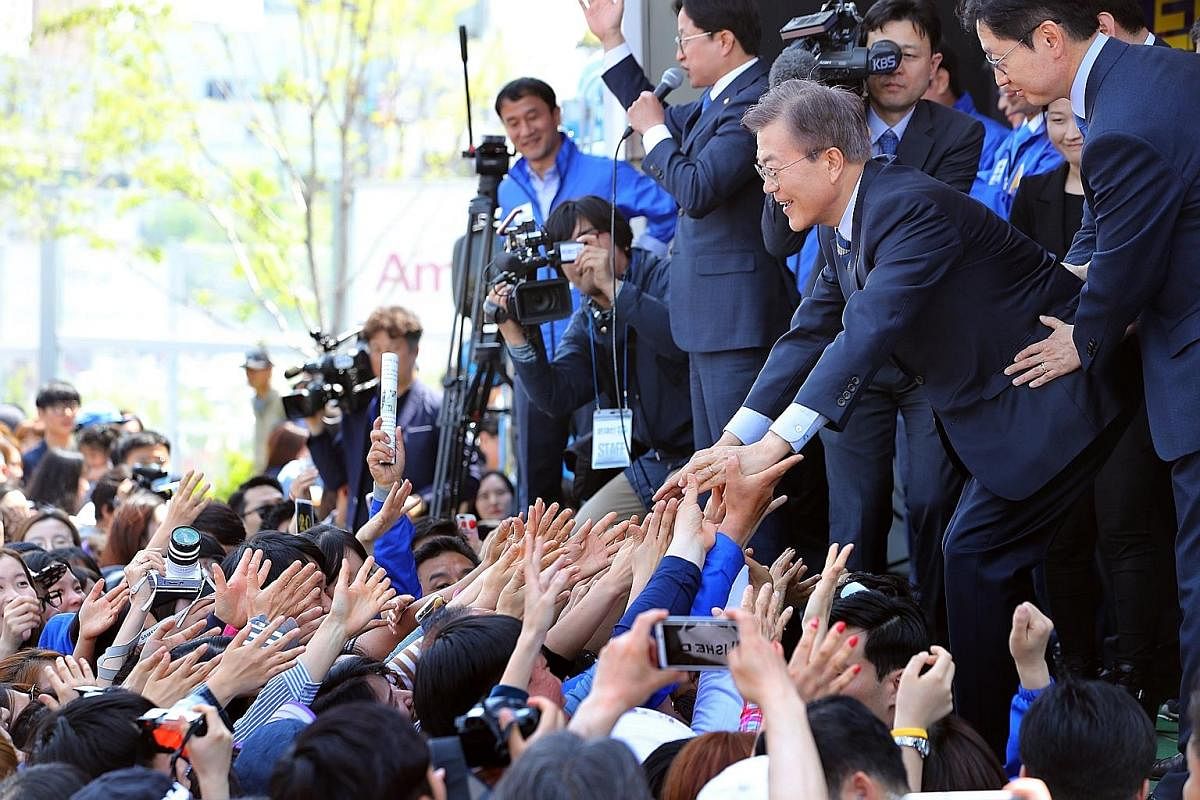
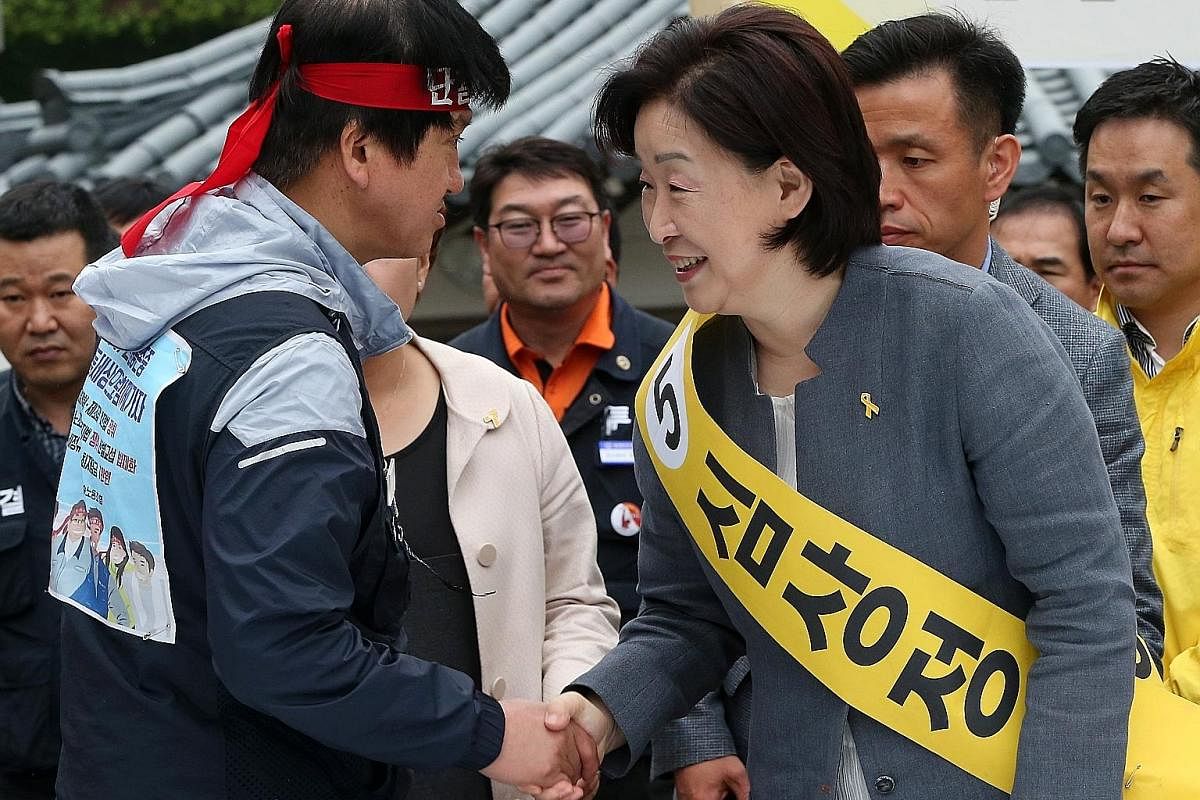
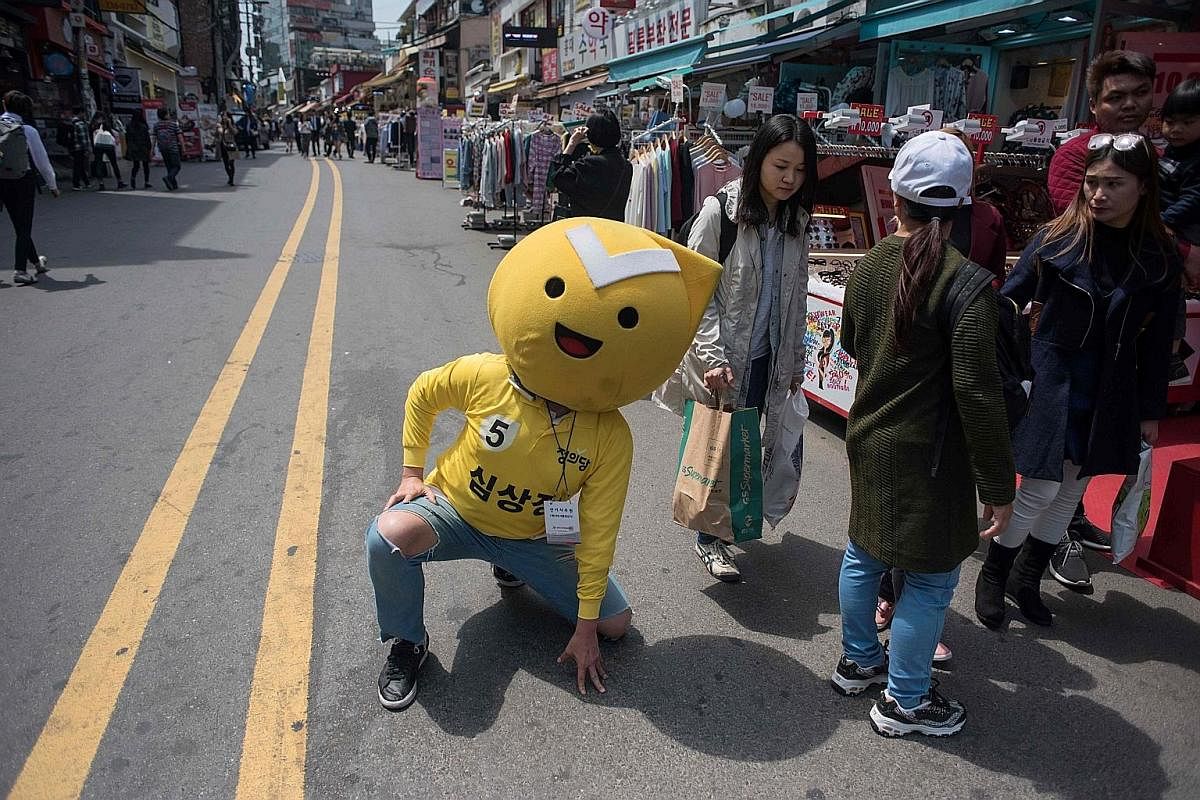
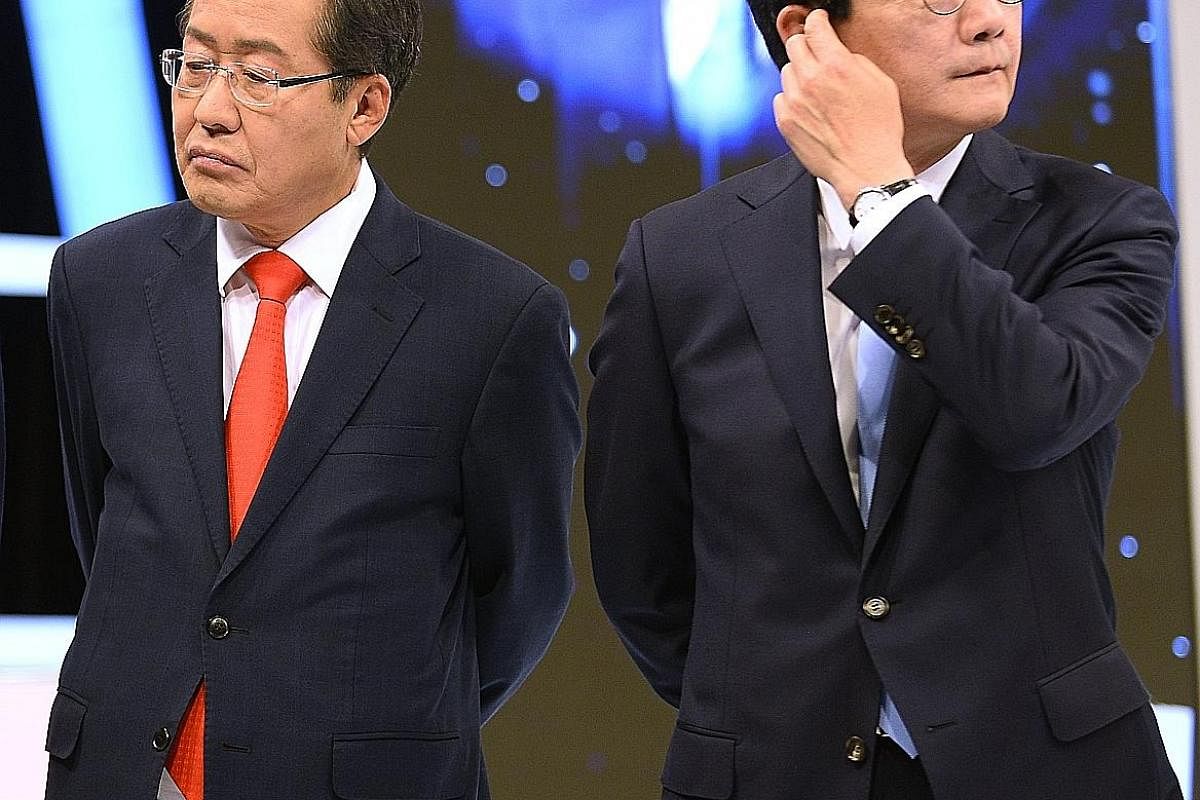
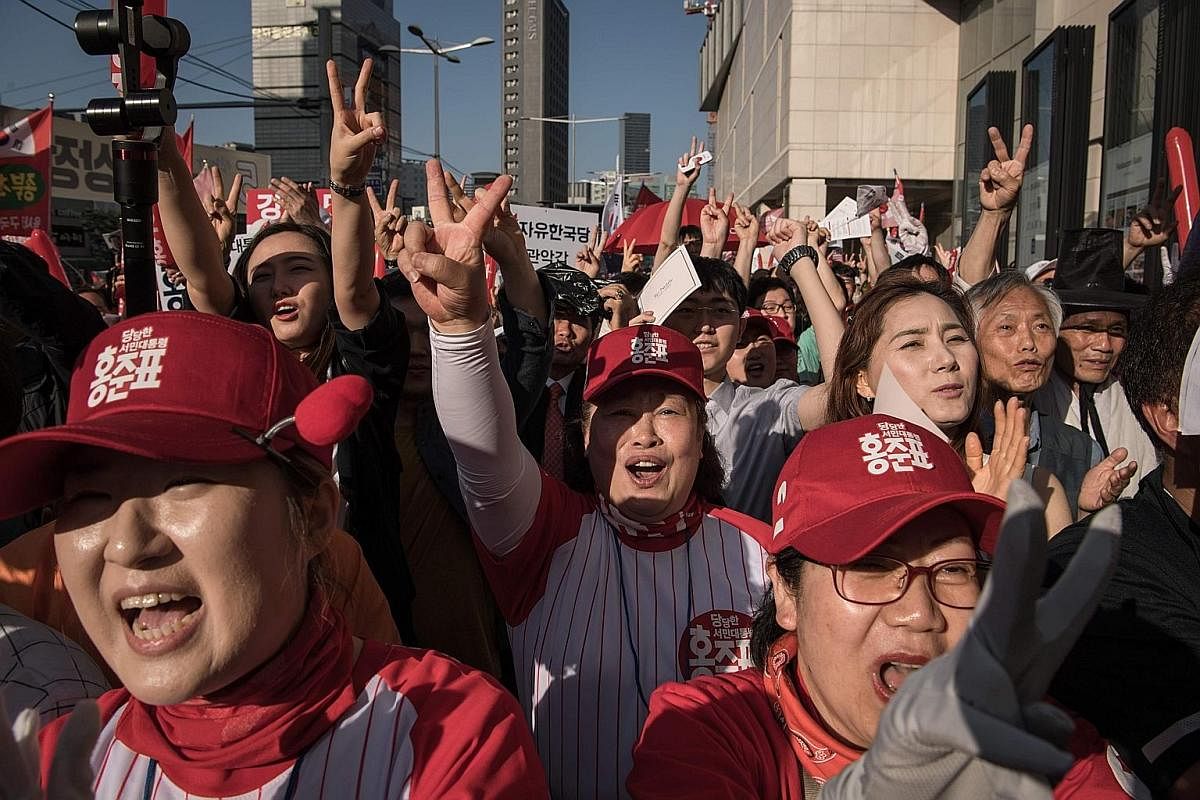
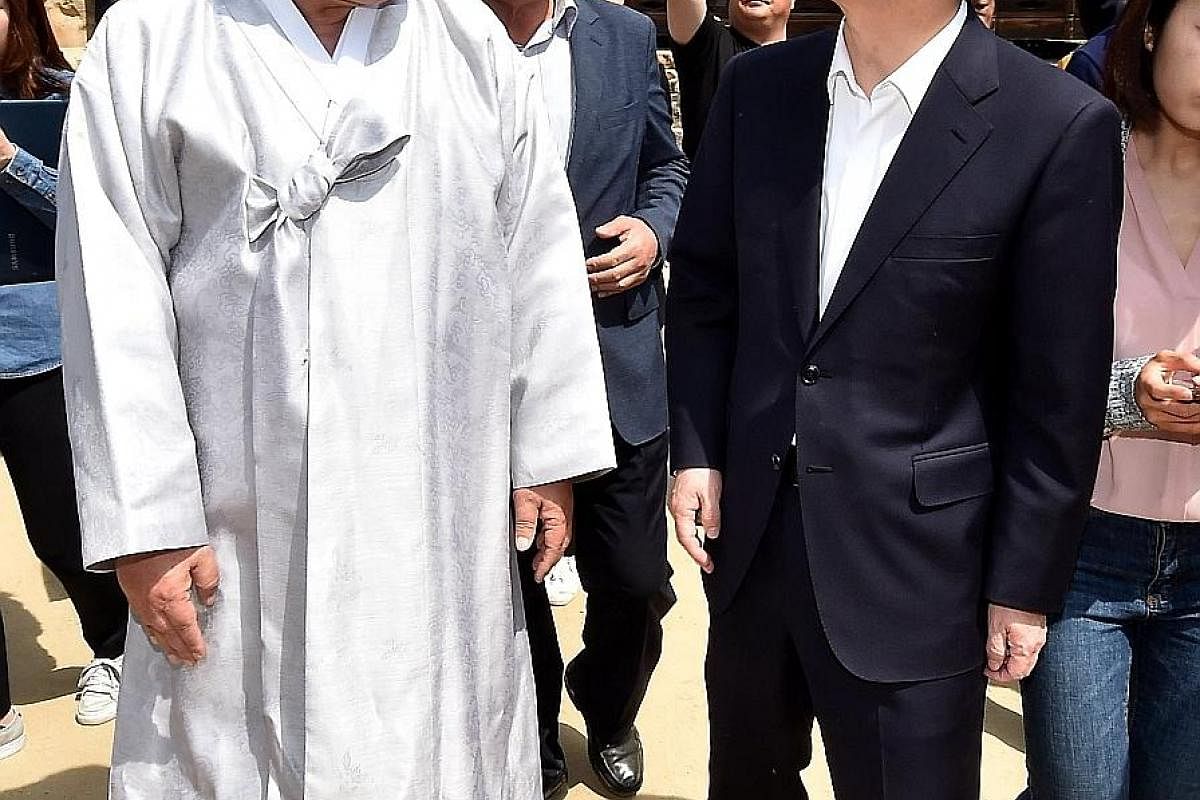
Millions of South Korean voters - many in the mood for change - go to the polls today to choose their next president as the military remained on high alert amid tensions on the Korean peninsula.
In an unusual move, the North's state media called for an end to "inter-Korean confrontation" that it blamed on the South's conservative camp, which has been in power for nearly a decade.
"A new era of unification should open up in collaboration between our race," the Rodong Sinmun said in an editorial yesterday, in a sign of support for a liberal candidate to win the election.
A liberal president will likely pursue Pyongyang-friendly policies, analysts say.
Many South Koreans also want to vote out the conservatives, but for a different reason.
One of them is Mr Pyo Young Seok, 47, who attended weekly candlelight protests for months that catalysed then President Park Geun Hye's downfall. Mr Pyo hopes the conservatives, now condemned after Park's impeachment, will be "completely destroyed" this time.
"I hope the new president will create a just and equal society based on the wishes of the people who led the candlelight revolution," the traditional medicine practitioner told The Straits Times.
The election is taking place amid a confluence of unprecedented events in South Korea's history: the biggest influence-peddling and corruption scandal that ousted Park, rising tensions on the Korean peninsula as a new US President tries to nip North Korea's nuclear threat in the bud, and frosty ties with China, which is retaliating against the deployment of a US missile defence system on South Korean soil.
The nation is deeply scarred by the Park scandal, which exposed the ills of conglomerate-driven growth underpinned by cronyism and cosy ties between businessmen and the ruling elite. Park and her confidant, Choi Soon Sil, have been arrested for colluding to extort money from conglomerates under the guise of donations. Both deny any wrongdoing. Tech giant Samsung's heir Lee Jae Yong, accused of bribing Park and Choi, is also facing trial.
In a sign of eagerness for change, a record 11.07 million people - out of 42.43 million in total - cast their ballots in early voting last week. The National Election Commission expects the total turnout to be higher than the 75.8 per cent in 2012.
Former human rights lawyer Moon Jae In of the liberal Democratic Party, which has the biggest presence in Parliament, leads the race. In the latest Realmeter poll, he has a solid 20 percentage point lead over his closest rivals: Mr Ahn Cheol Soo of the centre-left People's Party and Mr Hong Joon Pyo of the conservative Liberty Korea Party.
Whoever wins will have the unenviable task of resetting South Korea's relations with its neighbours and the big powers, as well as implementing reforms to stimulate the sluggish economy and eradicate corrupt practices.
A liberal president will also face pressure from the conservatives to harden his stance against the North while trying to engage Pyongyang and invoke change.
Some political watchers say Mr Moon's election is a foregone conclusion. He lost narrowly to Park in 2012. He gained popularity on promises that he would investigate the scandal thoroughly, if elected.
Other experts warn that a major upset is still possible if a significant number of supporters of Park's conservative party cast their votes for Mr Ahn instead. There is also a group of "shy voters" who have refrained from expressing their political views, and their choice is key to the results, say local reports.
Either way, the power will shift away from the conservatives.
Political science professor Lee Su Hyun from the S. Rajaratnam School of International Studies said Park's scandal has all but wiped out the conservative camp's chances.
"The majority of voters want to have a new government that is clean and more efficient in dealing with international and domestic affairs," she told The Straits Times.
South Koreans are deeply frustrated with everything that is wrong with the nation, all starkly reflected in the Park administration's failed policies. Its mishandling of the Sewol ferry sinking, which killed 300 people, coupled with unpopular moves to introduce disputed labour reforms and a state-written history textbook, sparked angry protests.
Economic growth has been sluggish. Corruption and cronyism are rampant. And connections are still deemed key to success.
Youth unemployment is at a record high, while the birth rate is at a record low. Competition is stiff - some 4,000 civil service posts drew 160,000 job seekers last April.
Frustrated young people even coined the term "Hell Joseon" to describe their society, where power lies in the hands of elites, while commoners like them have no hope.
Reforms needed to address these issues will not come easy, as none of the parties holds a two-thirds majority in the 300-seat Parliament required to pass Bills. The largest party - Mr Moon's - has 119 seats.
"A good deal of political manoeuvring and coordination will be needed to hammer out reform agendas and weld deals among politicians, political parties and community stakeholders," noted Kangwon National University political science professor Kim Kee Seok in a commentary.
One key issue will be constitutional revision to reduce the power of the so-called imperial president.
The new leader will also need to create quality jobs and find solutions to political impasses, including stalled talks to address North Korea's nuclear weapons, a row with Japan over comfort women and the missile shield dispute with China.
"What matters most... is not so much who becomes the new president but how strong (is) his will for reform ," Professor Kim wrote.
Mr Moon offers some hope. He has pledged to make job creation his top priority - 810,000 new jobs in the public sector and 500,000 more in the private sector. He has also vowed drastic reform of top conglomerates, stressing the need to "cut the collusive links between politics and businesses".
Ms Sofia Jung, 27, who works at an accounting institute, supports Mr Moon but does not think it will be an easy win for him.
"Many friends of mine have a bad impression of him, possibly because he is over-exposed in the media. Most of them support Ahn."
She also supports Mr Moon's plans to engage Pyongyang, saying: "I hope Moon can restart dialogue with the North."
Join ST's Telegram channel and get the latest breaking news delivered to you.
A version of this article appeared in the print edition of The Straits Times on May 09, 2017, with the headline South Korean polls may see shift to liberal camp. Subscribe
